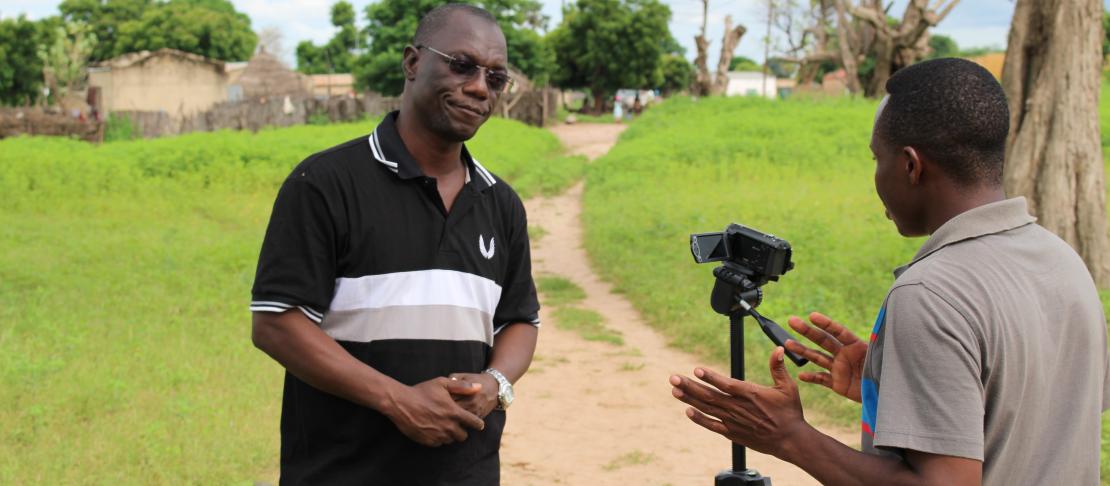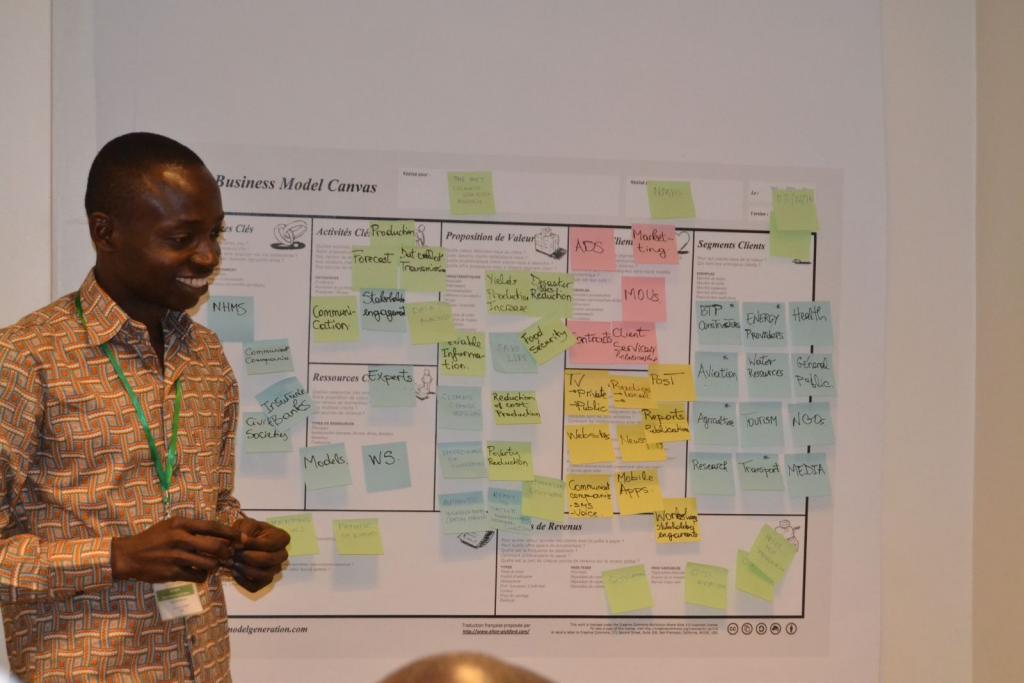Annual review and planning meeting in West Africa

Leaders at annual review and planning meeting discussed achievements in 2015 and planned future activities to help farmers cope with climate change.
An annual review and planning meeting was organised by the International Crops Research Institute for the Semi-Arid Tropics (ICRISAT) and the World Agroforestry Centre (ICRAF) under the framework of the CGIAR Research Program on Climate Change, Agriculture and Food Security (CCAFS) West Africa Regional Program to appraise and plan for CCAFS project 'Capacitating African Smallholders with Climate Services and Insurance Development (CASCAID),' and CCAFS project 'Capacitating science-policy exchange platforms to mainstream climate change into national agricultural and food security policy plans' implemented under Flagship 2 (FP2) and Flagship 4 (FP4) respectively of the CCAFS research portfolios.
Specifically, the meeting sought to (i) appraise key achievements for 2015 by reviewing activities executed to help develop a realistic plan for 2016; (ii) develop a set of business models for climate services, and (iii) update partners on the Phase II expectations of the CCAFS Research Program.
In attendance were 31 participants, from Niger, Burkina Faso, Ghana, Senegal, Mali, and others from Ethiopia, Florida and Iowa in the USA, and UK, who joined remotely via video conference.
The meeting started with a welcome address from Sibiry Traore, the Project Leader, followed by a presentation from Robert Zougmore. the CCAFS West Africa Regional Team Leader, who both assured participants of the promising nature of Phase II following the high ranking of the pre-proposal by the evaluation panel. The first two days of the meeting were focussed on reviewing activities and achievements of 2015 and planning for 2016. It was evident from the numerous presentations that substantial amount of activities had been successfully implemented in 2015.
In relation to FP2 it was reported that the Participatory Integrated Climate Services for Agriculture (PICSA) approach developed by the University of Reading is making tremendous impact in providing climate services to smallholders in the northern part of Ghana. It was revealed that two NGOs, ADRA and OXFAM, who were trained on this approach have successfully trained 6000 farmers in Northern Ghana as to how they can maximize the use of climate services for improving farm productivity and resilience to climate change. The same training has been scheduled and planned for Senegal and Mali in March 2016.
It is usually said that grounded data are so scarce in Africa - but not anymore! With the exponential improvement of technology, Ghana and Mali now have their own map room. These can be used by end users and used as help for decision support tools in agriculture, health and any other climate dependent sector. These map rooms consist of analysis of any 4 km gridded point data (precipitations and temperature) of the country gotten from merging satellite and grounded data. It is developed by the International Research Institute for Climate and Society (IRI).

Kofi Asare explains the business model done with the Met group to the other participants. Photo: Massama Dembele (ICRISAT)
As for FS4, capacity building of the national platforms of Mali, Ghana and Senegal on monitoring and evaluation to trace changes on policy influence was done and 72 stories of behavioral changes have been collected. In each of the 9 districts where the FS4 is operating, visioning scenario workshop was organized with key actors and decision-makers to examine the key drivers of change and plausible future climate and socio-economic developments at the district level, and to co-identify opportunities and actions which have to be taken today to enable a sustainable and more prosperous future for the districts. In the three countries, and further to the climate policy review conducted in 2014, an exploration research was conducted with each country team to overcome disconnects of climate priorities, knowledge and resources across scales, from district, region to national. Additionally, high level events were also organised to engage national policy agents, especially members of parliaments, to lobby for their supports on the local level challenges for greater alignment of adaptation initiatives.
The meeting ended with a session on developing a set of business model to visualise how sustainable smallholders' friendly climate services are likely to evolve in the coming decade, transforming researchers into business models developers. This was seen as a good initiative by many of the participants.
Andree Mentho Nenkam is a scientific officer under the CCAFS project CASCAID. Samuel Partey is the Regional Science Officer at CCAFS West Africa. Edmond Totin is a Social Scientist at ICRISAT Bamako, Mali.



